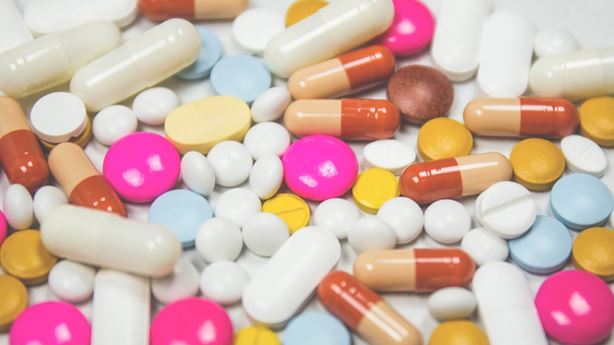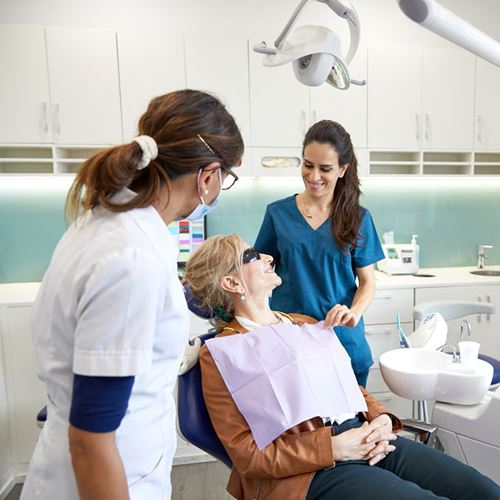Do I Need Antibiotics After Dental Implants?
Undergoing any surgical procedure, regardless of how invasive and “straightforward” it may be, can be a daunting prospect. With any surgical procedure, there are always going to be risks and it is therefore not uncommon for people who have recently been under the knife, to have to take antibiotics due to complications which have arisen as a result of their procedure.
When we think of dental procedures, one of the most common questions that people ask afterwards is whether or not they need antibiotics, particularly if they develop an infection following the procedure.
Now, antibiotics have revolutionized the medical and dental industries as we know them today, but they’re not without their risks. Here’s a look at what antibiotics are, the concerns over their use, and whether they’re needed after dental implant surgery.
What are antibiotics?
Antibiotics are a form of antimicrobial drug which is used to fight and destroy harmful bacteria in the body, thereby helping to fight and prevent bacterial infections, which can potentially be fatal.
Antibiotics get to work by destroying bacteria or by preventing them from multiplying and spreading.
Bacterial infections can come in many forms and can be caused by many different things. Antibiotics only work on bacterial infections so they’re no use when used to treat viral infections such as cold and flu viruses.
Open wounds are prone to bacterial infections which is why dental implant surgery can sometimes lead to infection, but does this mean that you should be prescribed antibiotics routinely after dental implant surgery? Absolutely not.
What is the concern over antibiotics?
Despite antibiotics being gamechangers in the medical world, they are not without their risks. To begin with, antibiotics can cause unpleasant side effects such as stomach ache, nausea, sickness, constipation, and diarrhoea.
The main concern with antibiotics, however, is the fact that overuse can potentially lead to bacteria becoming resistant to them, which is why so-called ‘superbugs’ such as MRSA have emerged, as they have developed to be resistant to the antibiotics.
What are dental implants?
Okay, so we now know more about antibiotics, but what about dental implants? Why would you potentially need antibiotics after dental implant surgery?
Dental implants are basically replacement roots for the tooth which are surgically applied to the jaw in the form of a titanium screw which is surgically implanted into the jawbone, allowing bone tissue surrounding it to fuse to it and hold it securely in place.
After these screws have been implanted, replacement synthetic teeth in the form of crowns or dentures, can then be screwed onto them, creating the impression of bright and healthy looking teeth.
Why might antibiotics be needed after dental implant surgery?
As previously mentioned, antibiotics are used to destroy harmful bacteria causing a bacterial infection, or to help prevent it from spreading and getting worse.
If harmful bacteria get into an open wound, they can quickly breed and multiply in there, causing an infection. Bacteria thrive in warm, moist, dark conditions and the mouth is therefore the perfect breeding ground for bacteria.
In the mouth, there are countless strains of bacteria and while many are harmless, or even beneficial, there are some which can be dangerous and can lead to infection.
Who is at risk?
Whereas anybody can potentially suffer a bacterial infection, there are certain people who are at a much greater risk than others, and who may therefore benefit from precautionary antibiotic treatment following dental implant surgery.
Elderly people with underlying health issues may be at risk due to a weakened immune system, along with people with suppressed or weakened immune systems in general.
Studies have also found that smokers are at risk of bacterial infection, as well as individuals with a history of endocarditis, or cardiovascular issues in general.
How to reduce your risk of infection following dental implant surgery
The good news if you are due to have dental implant surgery and are concerned about bacterial infection risks is the fact that there are things you can do to reduce your risk of infection.
The first thing you should do is speak to your dentist who can advise you on what to avoid, and what to do and use to minimize your risk of infection.
Your dentist will not only offer generalised advice, but they will also review your medical history to see if there are any underlying issues there which would put you at risk. From there, it’s down to them, and you, to make an informed decision about whether antibiotics may or may not be needed.
Final thoughts
As you can see, antibiotics are wonderful creations when it comes to our health, but they’re not without their risks and ideally, we want to avoid the need to take them anyways.
If you are due to undergo dental implant surgery, practice very good oral hygiene before and after the surgery and be sure to speak to your dentist and keep them informed on how you’re recouping following your surgery.








